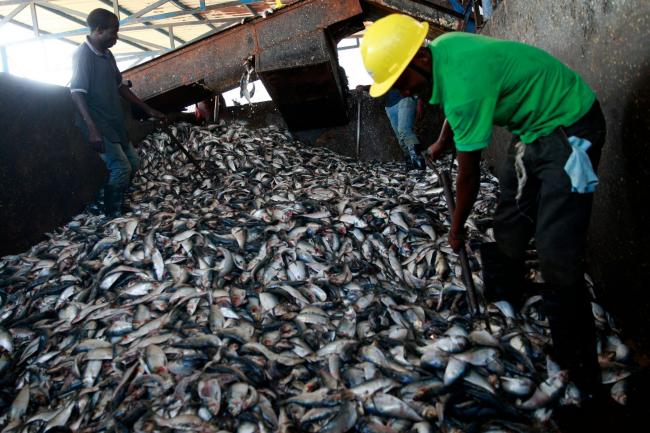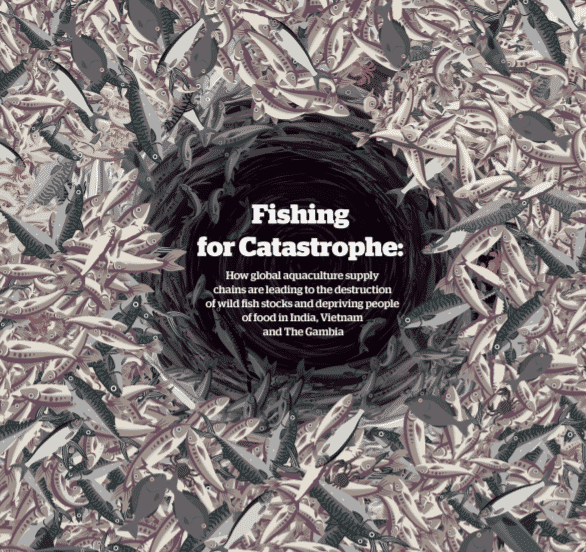
Large scale illegal fishing in Gambian waters have been linked to factories and supermarkets in Europe and China.
A Dutch-based charity, Changing Markets Foundation, in their report, Fishing for Catastrophe, said illegal fishing in The Gambia is “causing fish stocks to collapse and taking a key source of protein away from some of the world’s poorest communities, due to the aquaculture industry’s reliance on fishmeal and fish oil (FMFO) for fish feed.”
Changing Markets Foundation also claimed that pollution from FMFO production is destroying The Gambia’s budding eco-tourism industry.
The other countries mentioned alongside The Gambia in the major investigation of the fishmeal industry include India and Vietnam.
The report alleged that meal made from seafood illegally caught in The Gambia is ending up in fish farmed and sold in Scotland, Norway and China.
The investigation discovered that Gambian authorities were unaware of how much the Chinese operated fishmeal plants in the country were producing.
“Neither the FAO [UN Food and Agriculture Organisation] nor the (Gambia) government has records of Gambian fishmeal and fish oil (FMFO) production or exports, even though fishmeal plants have been operating in the country for some years.
“However, our investigation found that all three plants have been exporting FMFO illegally.
“From May 2017, the three plants had been exporting their FMFO destined for human consumption and feed without securing the required food safety certificates, potentially avoiding export fees and falsifying food-safety certificates – meaning the FMFO did not undergo any food-safety controls or inspections. This reveals serious gaps in international oversight on food security and product traceability, putting consumers’ safety at risk.”
Changing Markets said just one plant making meal accounted for 40 per cent of Gambia’s annual catches in 2016.

The foundation said a cloud of secrecy surrounded customers of the Chinese-owned fishmeal plants in The Gambia.
Investigators alleged loose controls meant farmed fish fed illegally or unsustainably end up in UK and other European supermarkets.
Anja Bakken Riise, leader of environmental group Future In Our Hands, told the Scottish Herald: “The aquaculture industry needs to move away from its reliance on fishmeal and fish oil, an industry that is jeopardising local food security, livelihoods, health and the environment as it stands today. The transition to alternative feed resources is imperative to secure a sustainable future where the aquaculture industry is part of the solution and not the problem.”
However Scottish salmon producers deny they get feed from any of the countries Changing Markets has investigated.
The Scottish Salmon Producers Organisation (SSPO) said:
“Scotland’s feed suppliers will continue to ensure their ingredients are sourced from responsible and sustainable fisheries, allowing Scotland’s salmon farmers to achieve the best feed conversion ratios of any livestock, thus ensuring best use of marine resources.”
Changing Markets in its report made a series of recommendations including calling for fish farms to switch to species that can have plant-based diet.










Recent Comments